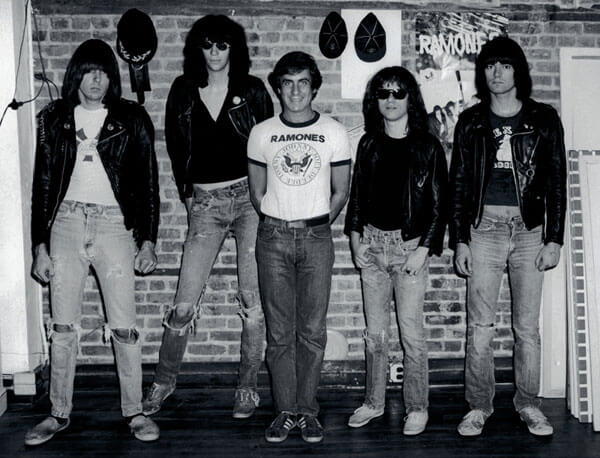By Steve Barnes
Earlier this year, the Queens Museum saluted one of Queens’ biggest contributions to the history of rock n roll with the exhibit “Hey! Ho! Let’s Go: The Ramones and the Birth of Punk,” which told the story of the legendary punk rockers on the 40th anniversary of the release of their first album.
Now, a new film gets up close and personal with another native son of Queens, one who played a big role in making the band a household name. “Danny Says,” a documentary by Brendan Toller that opened last month at the IFC Center in Manhattan, as well as being available on iTunes and Amazon, introduces movie-goers to editor, press agent, manager and bon vivant Danny Fields—born Daniel Feinberg in Richmond Hill. Fields, still a New Yorker at 76, went on to rub elbows and influence the careers of some of the central musical figures of the 60s, 70s and 80s.
Starting out on a path that would make any mother proud—graduating Phi Beta Kappa from the University of Pennsylvania by the age of 20 and attending Harvard Law School—Fields found his true path in life when he hooked up with the crowd from Andy Warhol’s Factory. Befriending both Warhol superstar Edie Sedgwick, and the members of the Warhol-mentored Velvet Underground (Lou Reed, John Cale and an impossibly glamorous Nico), Fields managed to place himself at the center of what was happening in the most cutting-edge of New York scenes.
From those beginnings, Fields blazed a trail through the music business that included stints working with the Doors, the MC5, Iggy Pop and the Stooges, Jonathan Richman and the Modern Lovers, Alice Cooper and in a somewhat surprising change of pace, Judy Collins. While he was not literally an artist himself, he had the knack of knowing what was worth listening to and seeing where the music world was going.
“He knew what to put up there and say ‘Hey, you should be looking at this,’” according to Pop.
Iggy, as well as many of the other people whose careers Fields fostered, show up on screen to salute him. In addition, two music-business titans—Jac Holzman of Elektra Records and Seymour Stein of Sire—weigh in, noting Danny’s talent both for picking talent and living on the edge.
That cast of characters gives the film enough of a sense of personality for two or three regular documentaries. From a still-kinetic Iggy Pop to Tommy Ramone, a regal-looking Judy Collins and John Cameron Mitchell of “Hedwig and the Angry Inch” fame, the talking heads in “Danny Says” are never less than interesting, giving sharp glimpses at what made Fields such a pivotal figure. Holzman and Stein add a more prosaic look at what made him special.
In addition, the film is something of a time capsule of New York in the 1960s and ’70s. Lovely snapshots of a naive Edie Sedgwick newly arrived on the scene give way to images of a brooding Jim Morrison, Patti Smith and Robert Mapplethorpe lurking in the background at Max’s Kansas City, and footage of the Stooges, MC5 and Ramones playing their music.
But the most captivating presence in the film is Danny Fields himself. An equal mixture of wide-eyed 5-year-old, boisterous nightlife maven and hovering, obsessive yenta, he brings all the threads of the story together in an appealing way. Winnowed down from over 250 hours of interviews, his oncreen remembrances offer vivid justification of why so many people on both sides of the music industry wanted to work with him. Frank to an extreme degree, his openness gives the film the air of a casual home movie, albeit one with an unusual cast of characters.
Heightening the childlike aura of Fields’ reminiscences, Toller includes animated sequences that illustrate his stories. Assembled by a team that includes noted animator Emily Hubley, they add an air of magic and fantasy, one that is thorougly appropriate for the star-crossed path of Fields’ career.




































